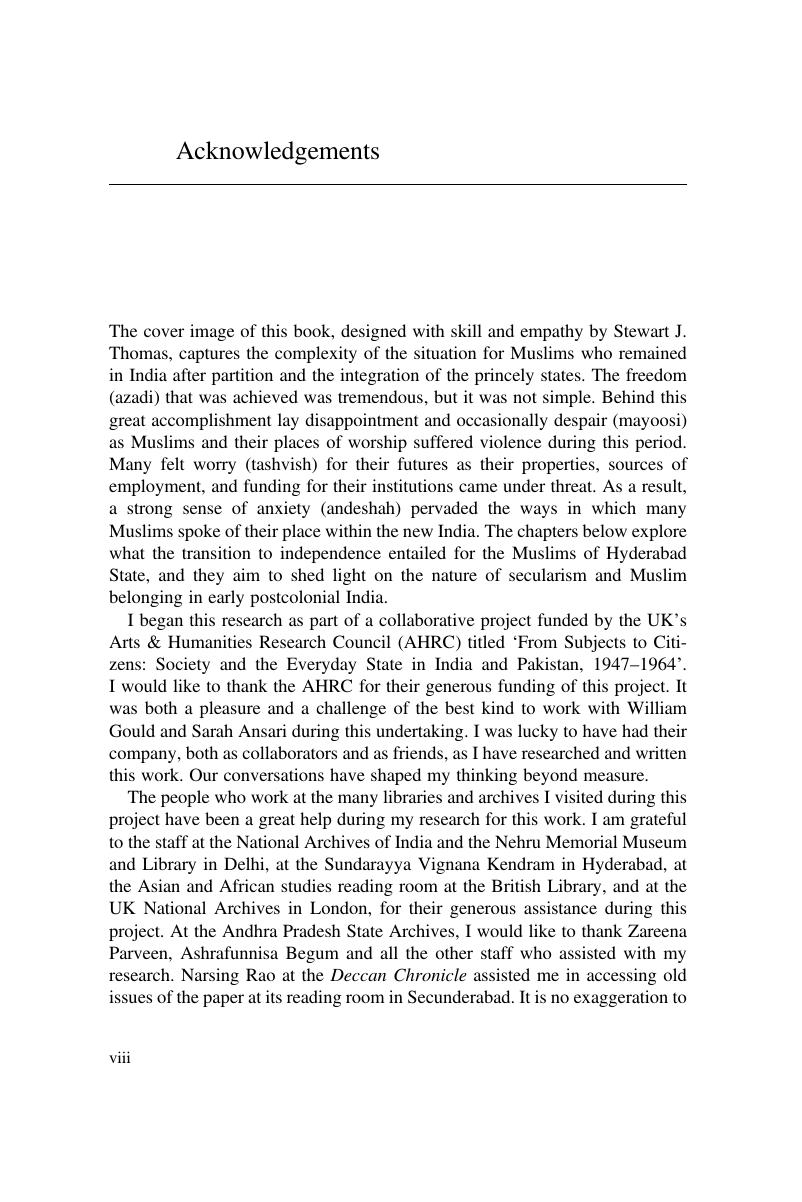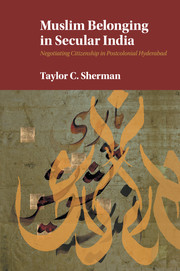Book contents
- Muslim Belonging in Secular India
- Muslim Belonging in Secular India
- Copyright page
- Dedication
- Contents
- Book part
- Note on transliteration
- Glossary
- 1 Introduction
- 2 Moral economies of communal violence and refugee rehabilitation
- 3 Unwinding Hyderabad’s pan-Islamic networks
- 4 Majority rule versus Mulki rule: government service and the Hindu majority
- 5 Secular Muslim politics in a democratic age
- 6 From the language of the bazaar to a minority language: linguistic reorganisation in Hyderabad State and the fate of Urdu
- 7 Conclusion
- Select bibliography
- Index
Acknowledgements
Published online by Cambridge University Press: 05 August 2015
- Muslim Belonging in Secular India
- Muslim Belonging in Secular India
- Copyright page
- Dedication
- Contents
- Book part
- Note on transliteration
- Glossary
- 1 Introduction
- 2 Moral economies of communal violence and refugee rehabilitation
- 3 Unwinding Hyderabad’s pan-Islamic networks
- 4 Majority rule versus Mulki rule: government service and the Hindu majority
- 5 Secular Muslim politics in a democratic age
- 6 From the language of the bazaar to a minority language: linguistic reorganisation in Hyderabad State and the fate of Urdu
- 7 Conclusion
- Select bibliography
- Index
Summary

- Type
- Chapter
- Information
- Muslim Belonging in Secular IndiaNegotiating Citizenship in Postcolonial Hyderabad, pp. viii - xPublisher: Cambridge University PressPrint publication year: 2015

